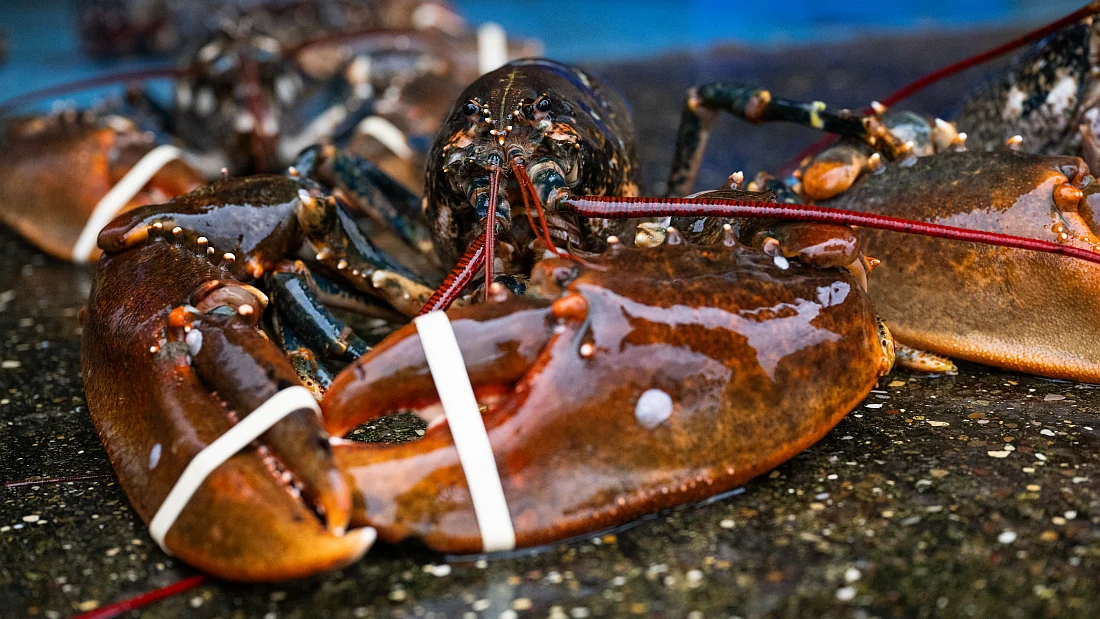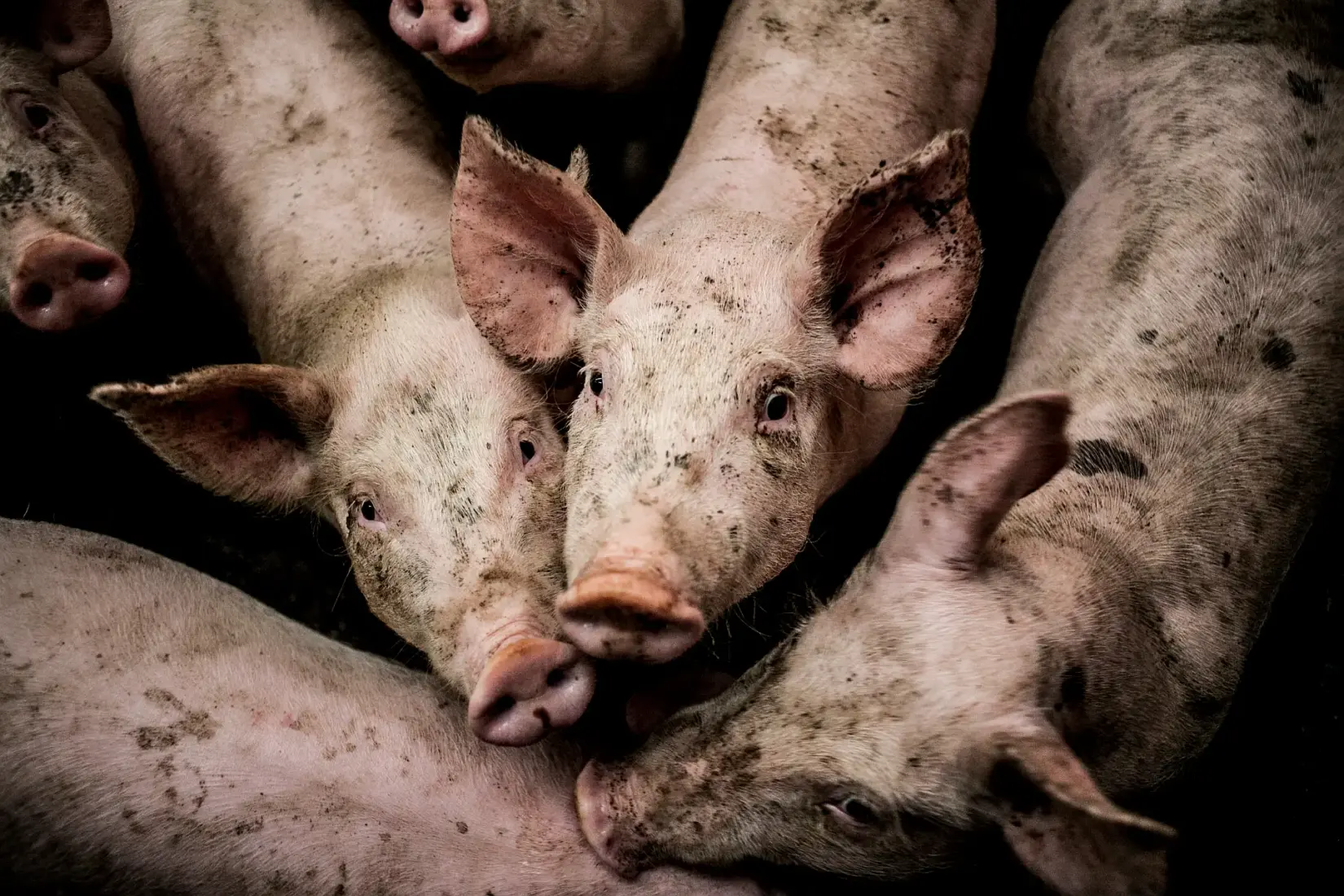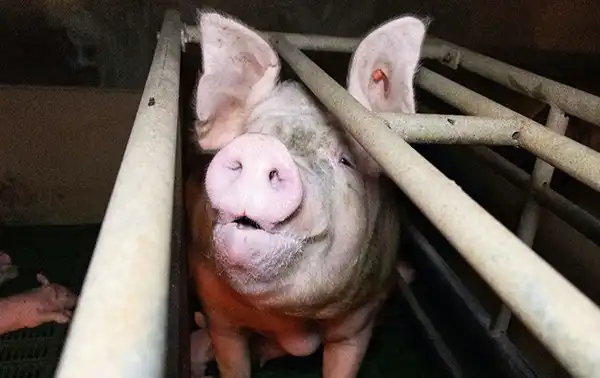How diet affects breast cancer

Number crunching
Breast cancer is the UK’s most common cancer affecting women. Every year, over 44,000 women
are diagnosed with it and 12,000 die from it. A staggering one in nine will be affected by this disease at some point in their lives.
More likely to survive… more likely to getit too!
Thanks to improved diagnosis and treatment, the chances of surviving breast cancer have greatly improved. However, the chances of getting this disease have rocketed up 80 per cent since 1971 and continue to rise by one per cent a year. This is a public health crisis!
It’s in the genes
Contrary to popular belief, 10 per cent or less of breast cancers are caused by faulty genes. The vast majority are caused by environmental factors such as chemical exposure or diet.
Women who are genetically susceptible to breast cancer (with faulty BRCA1 or BRCA2 genes) are much more likely to get it – but that doesn’t mean it is inevitable. In 1940, these genetically ‘predisposed’ women were 40 per cent more likely to get breast cancer than others – that figure is now 70 per cent! This proves that something other than genes is responsible.
In China and Japan, breast cancer rates are much lower. However, when women from these countries move to the West, within one or two generations their offspring become just as likely to develop it as the population into which they’ve moved. This again shows that the causes are more
environmental and lifestyle than genes.
So why did women in the 1940s have an advantage? Why do women in Japan and China have such low rates that rise when they move to the West? The scientific evidence points an unequivocal finger of blame squarely at diet!
A third due to diet?
The World Health Organisation (WHO) states that poor diets account for around a third of all cancers in the West. The World Cancer Research Fund reckons that cancer rates throughout the world could be reduced by up to 40 per cent simply by making dietary and lifestyle changes. About 90 per cent of breast cancer cases are linked to the environment and lifestyle. So clearly, diet is
involved in cancer.
Men and breast cancer
Breast cancer affects men too, although the numbers are much lower – one in 300 compared to one in nine women. Although rare, men tend to have larger tumours which have spread further
by the time they seek help.
Diet and breast cancer
Having said that, there is a reluctance to acknowledge the strong links between diet and breast cancer. Despite this, many studies show that diets rich in meat and dairy are linked to a higher
risk while plant-based vegetarian or vegan diets are linked to a lower risk.
Western diet – Western diseases
In 2007, the Shanghai Breast Cancer Study found that women who eat a Western-style diet based on meat, dairy and processed foods have almost double the risk of breast cancer. The traditional Chinese diet is largely plant-based which is why some Chinese women refer to breast cancer as “rich woman’s disease”.
Red alert
In another study, researchers from Harvard Medical School found that women who ate more than one-and-a-half servings of red meat a day – equivalent of a burger and a sausage – almost doubled their risk of breast cancer.
How meat is cooked has an influence. Those who eat lots of grilled, barbequed and smoked meats have a whopping 47 per cent increased risk of breast cancer. If they also skimp on fruit and vegetables the risk jumps to 74 per cent.
Fat facts
Another study from the Dunn Human Nutrition Unit in Cambridge showed that women who eat the most fat – mainly in whole milk, butter, meat, cakes and biscuits – are almost twice as likely to develop breast cancer as those who eat the least. Research from Harvard Medical School also confirmed that animal fat from red meat and high-fat dairy foods, such as whole milk, cream, icecream, butter, cream cheese and cheese, increased the risk of breast cancer.
Oestrogen
Meat and eggs contain oestrogen but most (60-80 per cent) of the oestrogen in the Western diet comes from cow’s milk and dairy products. Women who eat a Western diet have higher levels of oestrogen circulating in their blood, so do women with breast cancer. (Oestrogen sends signals through receptors telling some breast cancer cells to grow).
Damaging dairy
A typical glass of milk contains 35 hormones and 11 growth factors! The amount has increased hugely over the last 100 years as modern dairy farming methods have intensified. For example, two-thirds of retail milk in the UK is taken from pregnant cows when levels of hormones and growth factors are sky high.
Read more about it…
In her best-selling book, Your Life in Your Hands, Professor Jane Plant CBE, Anglo American Professor of Geochemistry at Imperial College, London, describes her very personal and moving story of how she overcame breast cancer by eliminating all dairy products. She also describes the research that backs up her argument. You can buy Jane’s inspiring book from the VVF. For more information about how harmful dairy foods can be see our scientific report White Lies, also available from the VVF.
Growth factors
Growth factors in cow’s milk – and human breast milk – send a message from the mother to new-born infant saying “Grow Grow! Grow!” They are essential for normal growth and development in the infant – but the infant of that species! Those who continue to drink milk (from another species) after weaning may be more likely to develop childhood cancers, lung, pancreatic, prostate, gastrointestinal, melanoma and breast cancer. A clue might be that when the growth factor IGF-1 is added to human breast cancer cells in the laboratory they grow out of control!
What worries some scientists is that IGF-1 can survive pasteurisation so it may cross the gut wall and enter the bloodstream. IGF-1 levels are higher in people who drink cow’s milk and lower in vegans. And like oestrogen, women with high levels of IGF-1 are more likely to develop breast cancer than those with normal or low levels. How long are we going to ignore such damning evidence?
Think and eat positive
There are many ways you can protect yourself against breast cancer and other diseases: stopping smoking, losing weight, exercising more and cutting down on alcohol. However, changing the way you eat is vital – and under your control.
Fruit and vegetables
There is strong evidence linking fruit and vegetables to a lower risk of breast cancer. Go for the dark and brightly coloured varieties.
Folic acid
Several studies show how the B vitamin folic acid can protect against breast cancer, particularly among women who are heavy drinkers. Folic acid is found in many foods including broccoli, Brussels sprouts, asparagus, peas, chick peas and brown rice. Other good sources include fortified breakfast cereals, wholegrain bread and fruits such as oranges and bananas.
Fantastic fibre
Many studies link fibre – particularly from wholegrains – with protection against breast cancer. Choose a highfibre breakfast cereal, switch from white bread and pasta to wholegrain varieties and ensure you have at least five portions of fruit and vegetables a day.
Eat your greens!
Green (cruciferous) vegetables such as spring greens, broccoli, Brussels sprouts and kale can protect against cancer. A powerful compound called sulphurophane stops the growth of cancer cells but not normal cells. Try to eat these types of vegetables every day.
The soya connection
Several studies show that eating soya foods when young reduces breast cancer later in life.
So there you have it – cow’s milk and dairy products and barbequed, smoked and red meats can all trigger breast cancer whereas the fibre, folic acid, antioxidants and other goodies found in fruit and vegetables, wholegrains, pulses, nuts and seeds help fight it. It’s not about going without, it’s about gaining a long and healthy life. Do yourself a favour and spread the word… going veggie could save your life.
Materials available
The fully-referenced scientific report One in Nine explains how breast cancer cases are continuing to rise and looks at how diet affects your risk of what has become a major killer in the West. The title, One in Nine, refers to the number of women in the UK who will get breast cancer in their lifetime! Find out how red meat and dairy are linked to breast cancer and how you can protect yourself with a diet rich in plant-based foods.
A Fighting Chance – this new easy-to-read colourful guide summarises the key findings of the VVF’s scientific report on breast cancer and provides vital information on which foods can help fight cancer. Also includes a seven-day meal plan with inspiring healthy recipes including Tortilla Wraps with Mango Salsa, Quinoa Superbowl salad and the fabulous Summer Berry Compote.




